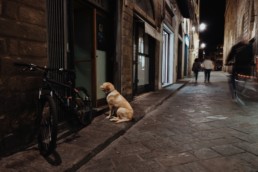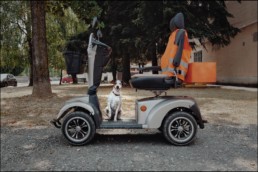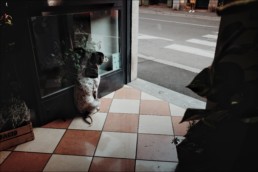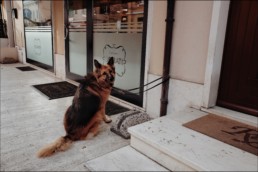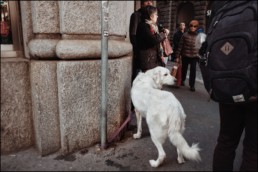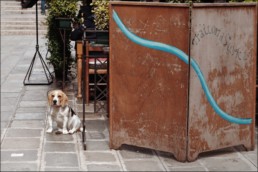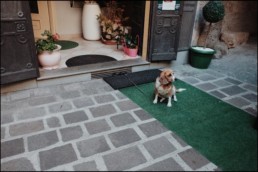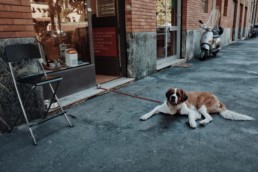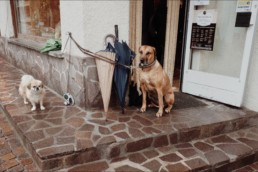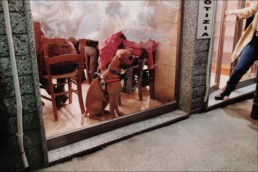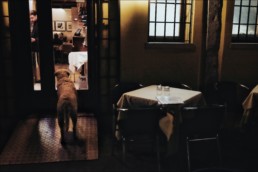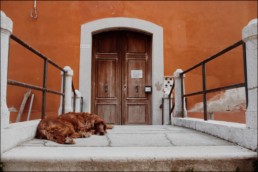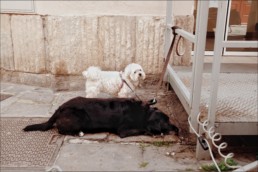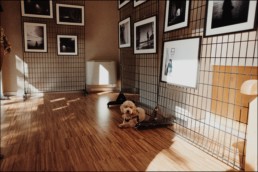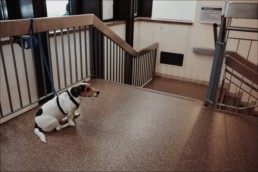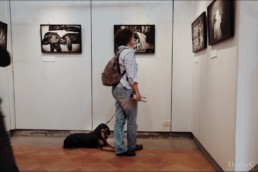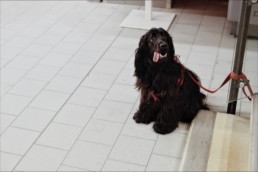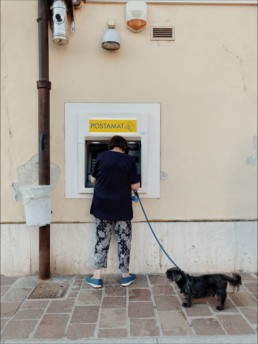Argo
“Ivi il buon cane,
Di turpi zecche pien, corcato stava.
Com’egli vide il suo signor piu’ presso,
E benche’ tra que’ cenci, il riconobbe,
Squasso’ la coda festeggiando, ed ambe
Le orecchie, che drizzate avea da prima,
Cader lascio’: ma incontro al suo signore
Muover, siccome un di’, gli fu disdetto.
Ulisse, riguardatolo, s’asterse
Con man furtiva dalla guancia il pianto,
Celandosi da Eumeo, cui disse tosto:
“Eumeo, quale stupor! Nel fimo giace
Cotesto, che a me par cane si’ bello.
Ma non so se del pari ei fu veloce,
O nulla valse, come quei da mensa,
Cui nutron per bellezza i lor padroni”.
Odissea, libro XVII, versi 290-329
___
“There lay the hound Argos, full of vermin;
yet even now, when he marked Odysseus standing near,
he wagged his tail and dropped both his ears,
but nearer to his master he had no longer strength to move.
Then Odysseus looked aside and wiped away a tear,
easily hiding from Eumaeus what he did;
and straightway he questioned him,
and said: “Eumaeus, verily it is strange that this hound lies here in the dung.
He is fine of form,
but I do not clearly know
whether he has speed of foot
to match this beauty
or whether he is merely as table-dogs are,
which their masters keep for show”.
Odissey, book 17, line 290-329

